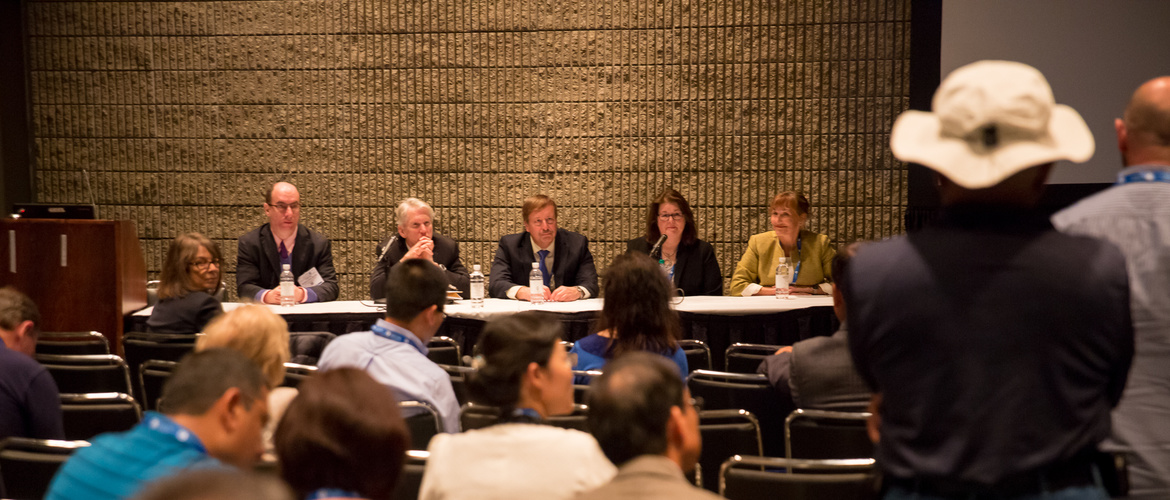
Choose a channel
Check out the different Progress in Mind content channels.

Progress in Mind

Are exceptionally talented people – whether in politics or poetry -- over-represented among those who suffer from mental illness? The continuing debate suggests the idea has substance. Studies of Abraham Lincoln and Sylvia Plath, presented at the Atlanta meeting of the American Psychiatric Association, reveal similar patterns of vulnerability but different patterns of resilience.
Abraham Lincoln, arguably the greatest President of the United States, undoubtedly had a serious mood disorder characterised by episodes of severe depression on a background of melancholia. But he also showed extreme resilience.
As listed by John O’Reardon (New Jersey, USA), among the possible predisposing factors were parents who suffered what seems like depression, the loss of his beloved mother when he was only nine years old, and the death of his older sister when he was 19. His relationship with his father was so dysfunctional that Abraham did not attend either his deathbed or his funeral.
Quote: Melancholy dripped off him as he walked, said William Herndon, Lincoln’s law partner
The first episode of major depression occurred when Lincoln was aged 26. It may have been precipitated by the death from typhoid of a woman he was in love with. He is said to have found intolerable the thought of rain falling on her grave and corrupting her body. But he recovered. A theme of Lincoln’s life is that he was liked by those who knew him, and a good social network always helped.
The second episode occurred six years later. Relevant factors seem to have been his heavy workload as an Illinois attorney dealing with the aftermath of an economic crisis, and a broken engagement. A contemporary writes of Lincoln as having been within an inch of becoming “a lunatic for life”.
He was treated by bleeding, cupping to “draw out” negative humours, and extreme purging. After switching to a doctor who recommended more gentle measures including fresh air and rest, he recovered.
Quote: The idea of rain falling on her grave was intolerable
Lincoln’s resilience seems to have increased with age, despite continued experience of loss. Two of his four sons died young, one at the age of three and the other aged eleven. During his presidency, more than 600,000 men died in the Civil War. Yet he triumphed in that bloody conflict, composed one of the greatest speeches of all time in the Gettysburg address, and achieved a second term as president.
Like Lincoln, Sylvia Plath lost a parent early in life: her father died when she was eight. But, as described by Michelle Nagurney, in this case grief became anger, and an enduring theme in her poetry. As a child, she was a perfectionist and published her first poem at the age of eight. By twelve, she was writing a journal to steady her mind. “Most people do not realize the chaos that seethes beneath my exterior”, she noted when seventeen.
Her first episode of depression may have occurred during her freshman year, when – perhaps as a reflection of cognitive impairment associated with the condition -- she confided that she could not write “a single coherent thought”. When she was able to resume, it was to recall the “drowning in negativism” and “sick naked hell” that she had experienced.
Plath suffered poor sleep, and started to cut herself, leading in 1953 to ECT and her first attempt at suicide, by overdose with sleeping pills.
But depression was interspersed with periods of uncharacteristically disinhibited behaviour – such as making sexual advances to a childhood friend – and other symptoms of mania. A friend recalled her racing recklessly from experience to experience. And she described her life as governed by two electric currents, “joyous positive and despairing negative – whichever is running at the moment dominates my life, floods it.”
A life that swung from joyous positive to despairing negative
She continued to write poetry and win prizes, and gained a place to study at Newnham College, Cambridge, in the UK, where she met and – seemingly on impulse – married fellow poet Ted Hughes.
When Hughes left her for another woman, this real betrayal provoked a venomous rage against the “abandonment” by her dead father. She sought medical help, was prescribed MAOIs, and – a week later – died from gas asphyxiation. More than twenty years after her death, Plath was awarded a Pulitzer Prize for her collected poetry.
The putative diagnosis is bipolar disorder, possibly with elements of borderline personality disorder. Sylvia Plath’s potential resilience seems to have been undermined by perfectionism, the lack of a positive personal narrative, and a sense of identity that depended on others. In the case of Ted Hughes, with whom she had felt “as one”, this was fatally crushed by abandonment.
Our correspondent’s highlights from the symposium are meant as a fair representation of the scientific content presented. The views and opinions expressed on this page do not necessarily reflect those of Lundbeck.